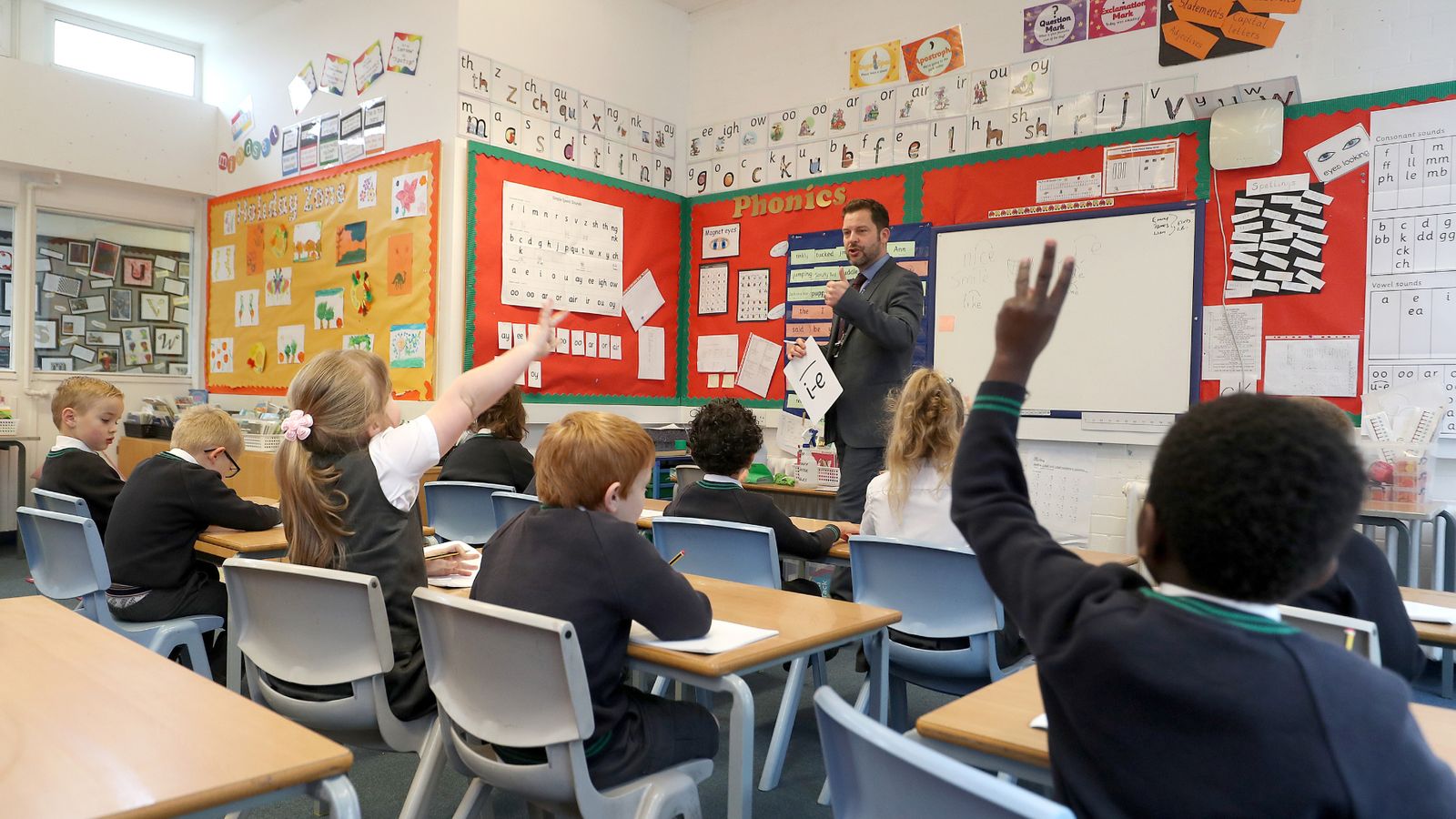The use of terms including “white privilege” may have contributed to the “neglect” of white working-class pupils in the education system, a Commons committee has found.
MPs on the Education Select Committee said schools must consider the implication of such “politically controversial terminology” and find “a better way to talk about racial disparities”.
A report by the committee agreed with the Commission on Race and Ethnic Disparities that the term “white privilege” can be “divisive” and said disadvantaged white pupils have been let down by “muddled” policy thinking.
It also accused the Department for Education (DfE) of failing to acknowledge the extent of the problem.
Conservative MP and chairman of the Education Select Committee Robert Halfon said white working-class pupils have been “led down and neglected” by the system “for decades”.
Accusing governments, including his own, of a “lack of attention” to the issue, Mr Halfon urged the Department for Education to “desperately” address the matter.
DfE said the government is focused on ensuring “no child is left behind”.
Among the recommendations put forward by MPs were the need for tailor-made funding at a local level and a focus on attracting good teachers to challenging areas.
Apprenticeships and vocational opportunities should also be more widely promoted, they said.
The committee found that 47% of white British pupils eligible for free school meals (FSM) – about 28,000 children – did not meet the expected standard of development at the end of the early years foundation stage in 2018/2019.
In 2019, just 17.7% of FSM-eligible white British pupils achieved at least a strong pass (grade 5 or above) in English and maths at GCSE, compared with 22.5% of all FSM-eligible pupils.
The committee found these disparities striking because white people are the ethnic majority in the country, yet FSM-eligible white British pupils are the largest disadvantaged group.
“If the government is serious about closing the overall attainment gap, then the problems faced by the biggest group of disadvantaged pupils can no longer be swept under the carpet,” Mr Halfon said.
“Never again should we lazily put the gap down to poverty alone, given that we know free school meal eligible pupils from other ethnic groups consistently outperform their white British peers.”
The Conservative MP added: “We also desperately need to move away from dealing with racial disparity by using divisive concepts like white privilege that pits one group against another. Disadvantaged white children feel anything but privileged when it comes to education.
“Privilege is the very opposite to what disadvantaged white children enjoy or benefit from in an education system which is now leaving far too many behind.”
Please use Chrome browser for a more accessible video player
A Department for Education spokesperson said: “This government is focused on levelling up opportunity so that no young person is left behind.
“That’s why we are providing the biggest uplift to school funding in a decade – £14 billion over three years – investing in early years education and targeting our ambitious recovery funding, worth £3 billion to date, to support disadvantaged pupils aged two to 19 with their attainment.”
Geoff Barton, general secretary of the Association of School and College Leaders (ASCL), said the committee’s debate on the term “white privilege” is unhelpful.
“We’re not quite sure why the committee has chosen to enter the debate about the widely discredited report from the Commission on Race and Ethnic Disparities, and the term ‘white privilege’,” he said.
“This does not seem helpful and is likely to divert attention from the rest of the report.
“Schools are well aware of their responsibilities and do a very good job in providing opportunities for discussion around issues in a sensitive, balanced and measured way.”
Analysis: An incendiary contribution to Britain’s current debate over racial justice
By Jason Farrell, Home editor
On the face of it, you might say it’s uncontroversial – why shouldn’t the education select committee write a report highlighting the worrying under achievement of a marginalised group?
But this report, with its references to the white working class being “forgotten”, is an incendiary contribution to Britain’s current debate over racial justice.
The statistics are unarguable: the poorest white kids do worse, educationally, than most of the poorest kids of a minority ethnic background.
Robert Halfon’s committee talk of geographical marginalisation and a lack of “social capital.” There is a clear implication throughout that race has been – what’s the word? – privileged, more than social class, in a lot of modern debate.
Indeed, it lays the expression “white privilege” as part responsible for the “systemic neglect” of white working-class children.
“It promotes disharmony,” committee chair Robert Halfon told me. He added: “The concept of white privilege is entirely wrong-headed, because white working-class boys and girls from disadvantaged backgrounds under-perform compared to most other ethnic groups.”
The report’s opponents question why the issue of improving the lot of the white working class is set against the issue of ethnicity.
Nels Abbey, author of Think Like A White Man, said: “White working-class people are not an ethnic group – they are an economically challenged section of an ethnic group and these debates are always predicated on the fallacy of white working-class people versus ethnic minorities.”
The report plays into the politics of left behind communities and sets it against the goals of some racial equality campaigners for white privilege to be universally recognised.
It lands in the lap of a government peculiarly dependent, in its own eyes at least, on the support of the white working classes.






















